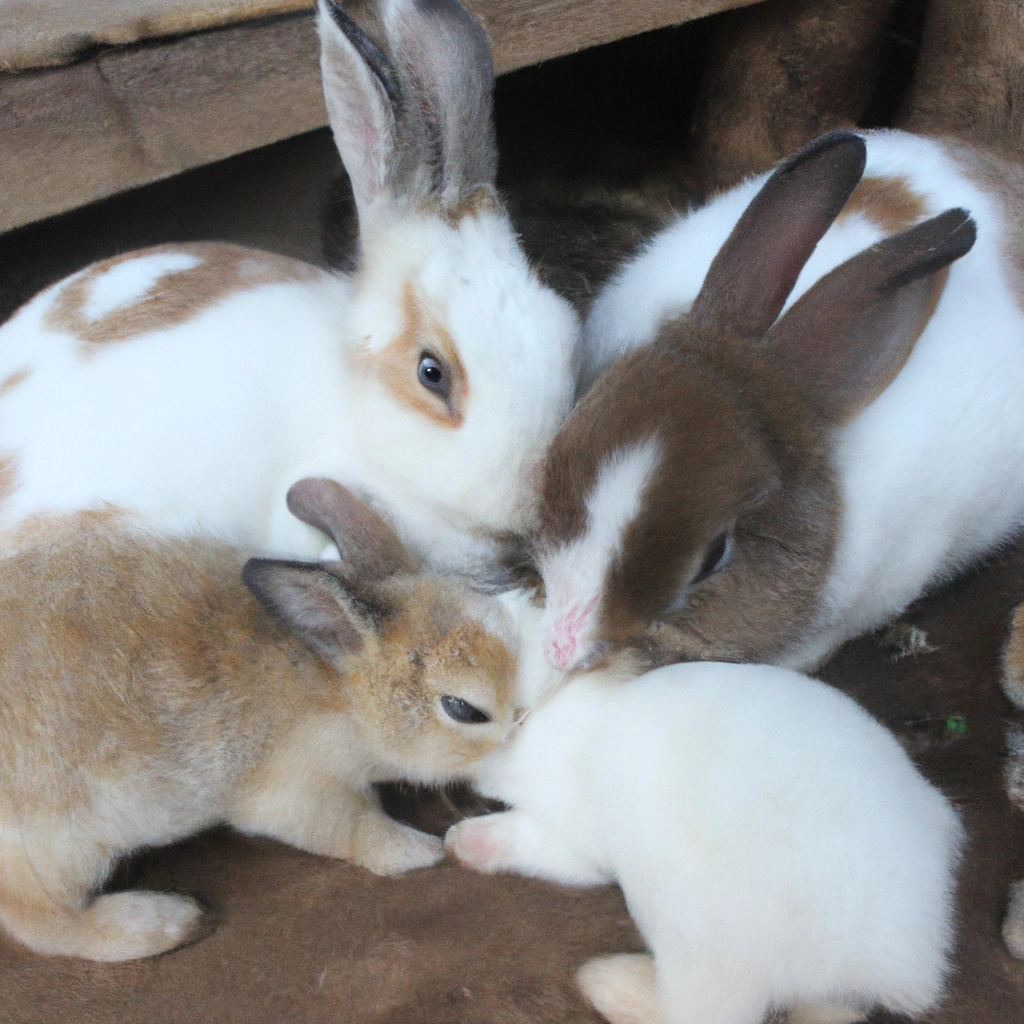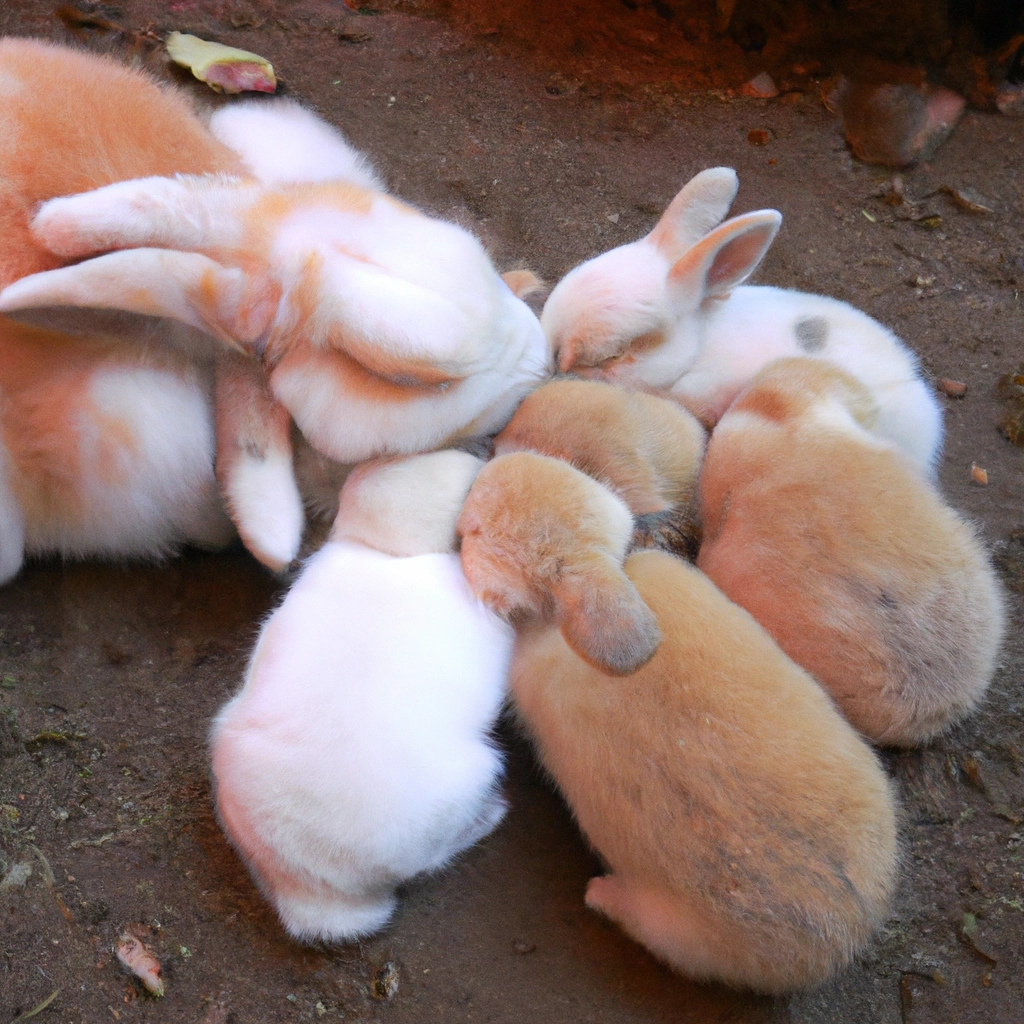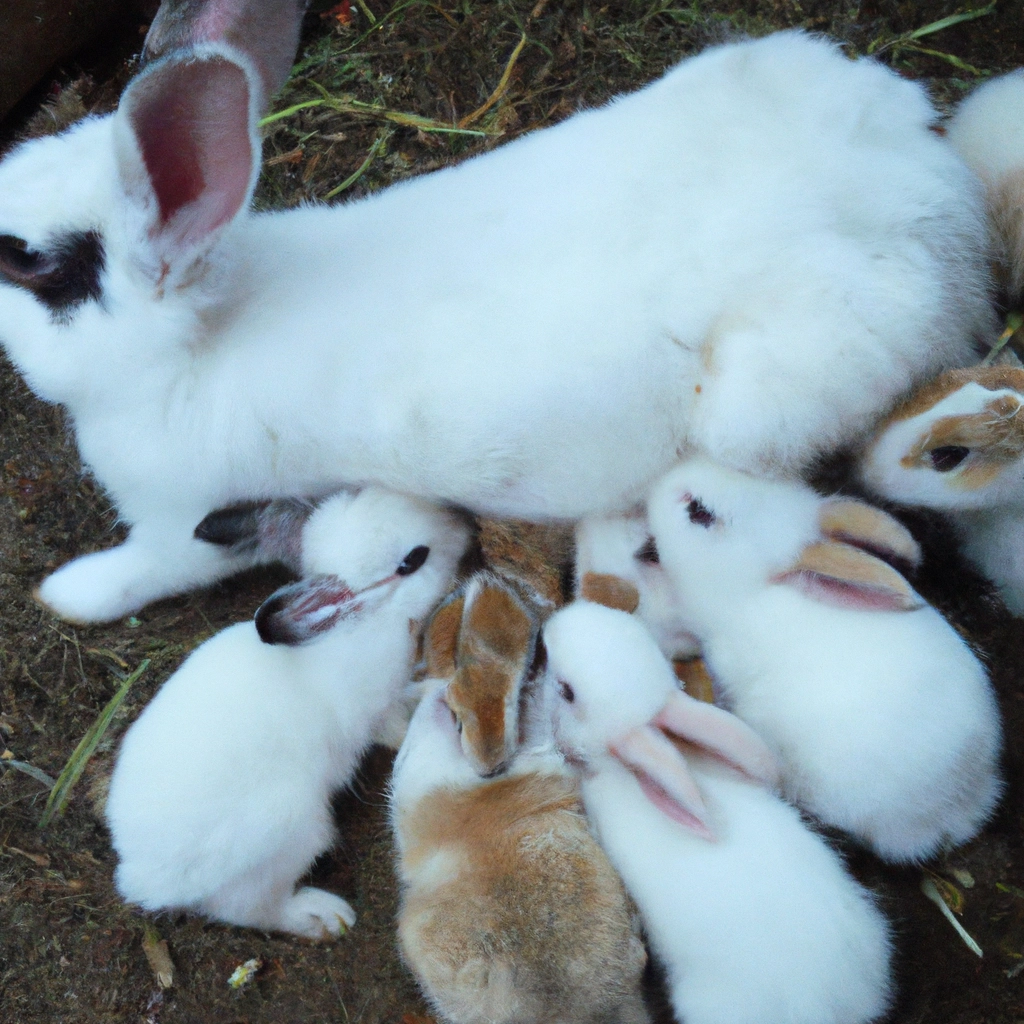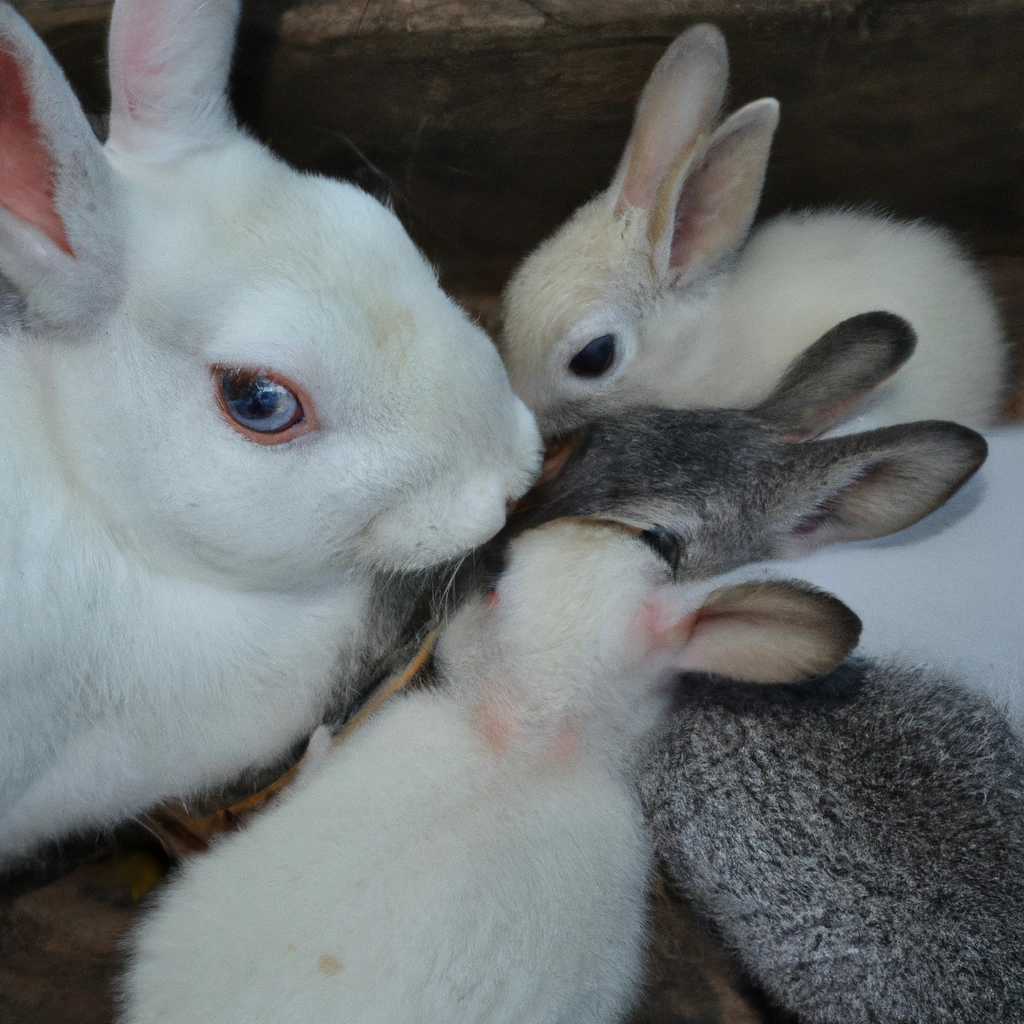| Age | Details |
|---|---|
| 0-3 weeks | Baby rabbits (kits) are entirely dependent on their mother for warmth, food, and protection. |
| 3-6 weeks | Kits start to wean and eat solid food, but still rely on their mother for guidance and protection. |
| 6-8 weeks | Kits are ready to leave their mother, as they can feed on their own, but they may still seek comfort from her. |
| 8-12 weeks | Kits are fully weaned and independent, and it’s best for them to be separated from their mother to prevent inbreeding. |
| After 12 weeks | Kits should be living independently from their mother, as they can reach sexual maturity as early as 12-16 weeks. |
Have you ever stumbled upon a picture-perfect scene of baby rabbits nestled up against their mother? There’s something endlessly fascinating about the nurturing bond they share that sparks a curiosity. How long does this idyllic family portrait last? Can young bunnies spend their lives under the protective eye of their doting mother? As an avid wildlife observer, I’ve had the joy of witnessing these tender moments firsthand and have uncovered some answers.
There’s a delicate balance in nature that often goes unnoticed. But spend enough time amidst the whispers of the wild, and its stories begin to unravel. My journey into the realm of rabbit relations did just that, revealing insights into the ephemeral connections that define their world – and it all starts with the heartwarming bond of a mother and her young.
Together, let’s hop into this burrow of knowledge and explore the lifecycle of bunnies and how their relationship with their mother evolves over time. Through anecdotes from my own experiences and a sprinkle of expert insights, we’ll unravel the truth behind our floppy-eared friends’ family dynamics.
The Early Days: Mother and Baby Rabbit Bonding
The sight of a mother rabbit tenderly grooming her litter of kits is enough to melt the iciest of hearts. She embodies devotion, creating a warm, secure nest to shield her offspring from the world’s dangers. The maternal bond is critical in these early days, from supplying milk to teaching essential survival tactics.
Once, while on a serene woodland walk, I recall watching a doe – that’s a mother rabbit, for those unacquainted with the lingo – as she carefully attended to the needs of her young. She’d leave to forage, returning with a nourishing feast to ensure their growth. This close relationship is the foundation upon which these young rabbits will build their futures, and it was a privilege to witness such natural affection in the wild.
But as nature dictates, this period of dependency is but a fleeting chapter in the lives of these creatures. As essential as this early nurturing is, it sets the stage for what’s to come – the weaning period, where baby rabbits must begin to chart their own course.
Weaning Period: When Baby Rabbits Start to Gain Independence
The weaning stage is a transformative time for young rabbits. Typically, after about four to six weeks, the kits will begin sampling solid food, venturing out of the nest, and gradually relying less on their mother’s milk. It signifies the beginning of self-sufficiency and the end of their time under their mother’s watchful eye.
I remember when I was fostering a tiny kit named Thumper. At first, he was hesitant to leave the borrowed warmth of a makeshift nest. But as days turned to weeks, his confidence grew. I watched with pride as he nibbled on his first pieces of hay, an important milestone marking his journey towards independence.
Through this natural process, baby rabbits learn the skills they need to thrive on their own. It’s a crucial time of growth and development that prepares them for the solitary life that most adult rabbits lead.
Adult Rabbit Behavior: How Mothers Interact with Their Grown-Up Offspring
Rabbits, once grown, embrace a life that’s largely independent. Unlike some species that maintain family groups, adult rabbits typically go their separate ways. This isn’t to say that familial bonds don’t matter, but rather that they evolve – much as human relationships do – into something more distant.
During an early morning hike, I was lucky enough to come across a warren where I could quietly observe the interactions of a rabbit family. The grown kits were now living their own lives, and their mother, while still in the same vicinity, was more like a neighbour than a caregiver. They foraged in the same meadow but did so in their separate elements, displaying the understated independence characteristic of adult rabbits.
It’s fascinating to see how these relationships transform over time. The mother plays less of a role once her offspring reach adulthood, but the early bonds they shared lay the groundwork for the lives they lead separately.
Conclusion: The Importance of Understanding Rabbit Behavior
We’ve journeyed through the life stages of rabbits, from the nurturing bonds of infancy to the independence of adulthood. Understanding these dynamics enriches our appreciation for these endearing creatures whether we encounter them in the wild or care for them as pets.
I urge you to take the time to observe the natural behaviors of rabbits. Beyond the joy it brings, it provides insights into ensuring our furry companions live fulfilling lives true to their nature. Compassion and knowledge go hand in hand when it comes to the stewardship of these beautiful animals.
In summary, young rabbits grow up to lead lives of their own, nurtured by the lessons and care they received from their mothers in their earliest days. They may not stay forever by her side, but their journey together forms part of the wonderful tapestry of the natural world.
Author’s Note: Reflecting on Personal Engagement with Rabbit Behavior
Reflecting on my experiences with watching and fostering rabbits, I’m struck by how these encounters have shaped my understanding and admiration for these creatures. From the tiny, helpless kits to the bold, independent adults, I’ve gained a profound respect for the intricacies of their lives.
This article is a culmination of patient observation and heartfelt engagement with rabbit behavior. Every tidbit shared stems from authentic encounters and a desire to impart the marvel that is the world of rabbits – a plea to recognize their beauty and complexity.
As we draw this exploration to a close, I’m reminded that through each article, each instance of observation, we become closer to unraveling the mysteries of the natural world. And it’s my hope that my musings have brought you a step closer, too.
Frequently Asked Question
-
How long should baby rabbits stay with their mother before being separated?
Baby rabbits should stay with their mother for at least 6-8 weeks before being separated. During this time, they learn important social and survival skills from their mother and siblings. Separating them too early can lead to health and behavioral issues, so it’s best to let them stay with their mother until they are fully weaned and able to thrive on their own.
It’s important to ensure that the baby rabbits are eating solid food and are fully independent before separating them from their mother. This will help them transition more smoothly and reduce stress during the separation process. If you have any concerns about separating the baby rabbits from their mother, it’s always best to consult with a veterinarian or experienced rabbit breeder for guidance.



